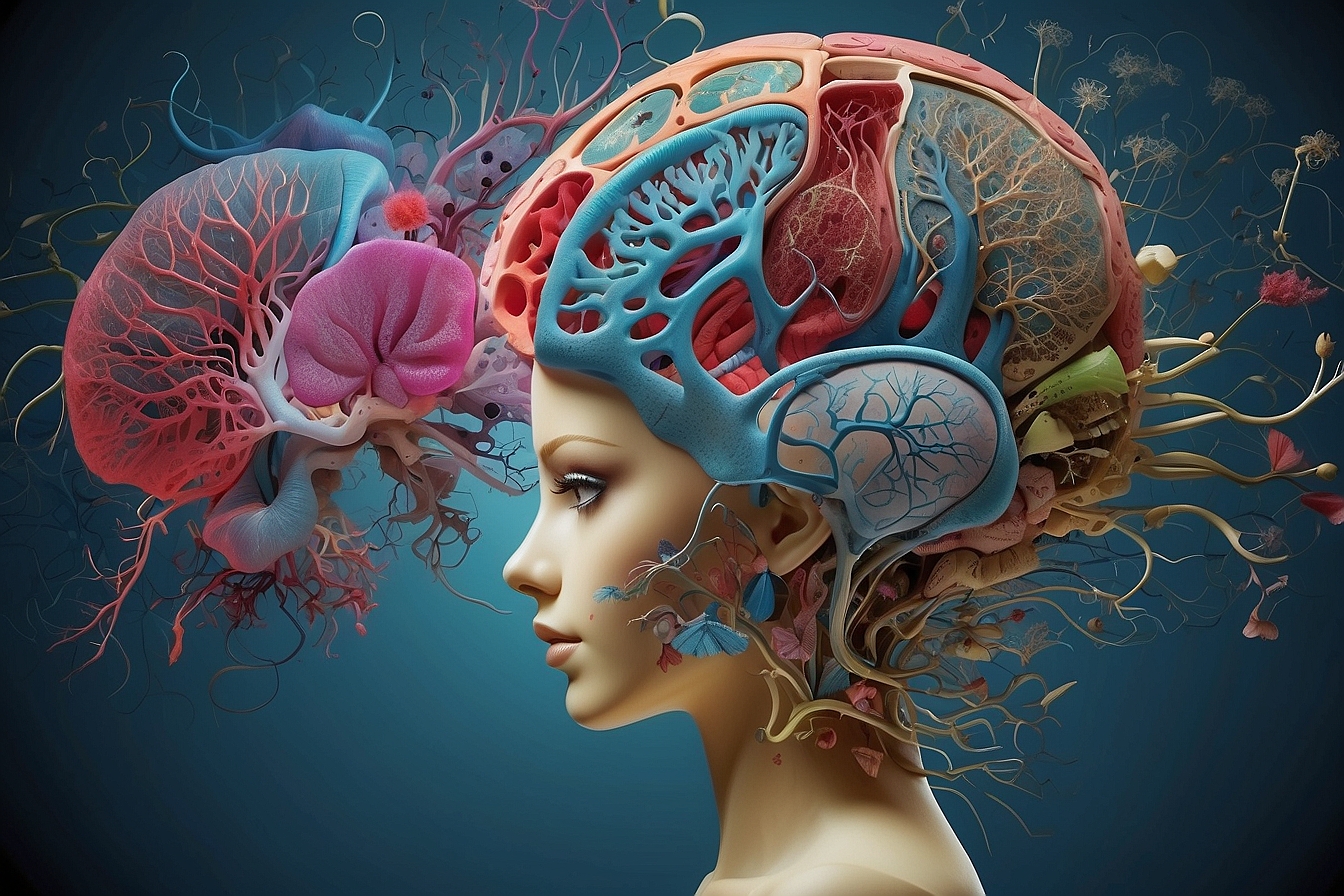
Biopsychology, also known as behavioral neuroscience, is a branch of psychology that analyzes how the brain, neurotransmitters, and other aspects of our biology influence our behaviors, thoughts, and feelings.
It is a multidisciplinary field that integrates numerous perspectives from biology, psychology, and medicine.
Biopsychology is concerned primarily with the relationship between psychological processes, or the mind-body phenomenon, and focuses on the function of the brain and the rest of the nervous system in activities such as thinking, learning, feeling, sensing, and perceiving.
Philosophers’ Views on Biopsychology
Exploring the connection between the mind and body has intrigued philosophers over time.
Aristotle, for instance, speculated that the mind and body are intertwined elements of the same entity, viewing the mind as one of the body’s functions.
René Descartes, a French philosopher, introduced the idea of dualism, suggesting a separation between the mind and soul as distinct entities.
These philosophical perspectives have significantly shaped the evolution of biopsychology as a distinct field of study.
Link Between Biopsychology and Human Behavior
The connection between biopsychology and human behavior is vital.
Biopsychology aids our comprehension of human behavior by delving into the biological processes that underlie our thoughts, emotions, and actions.
For instance, studies in biopsychology reveal the pivotal role of neurotransmitters like dopamine and serotonin in regulating mood, motivation, and reward.
This knowledge equips us to develop more effective interventions for mental health disorders, as we gain insights into the intricate relationship between biology and behavior.

The Brain and Nervous System
Biopsychology centers around the study of the brain and nervous system, key players in controlling our body’s functions.
The brain, a sophisticated organ, manages crucial aspects like movement, sensation, and cognition.
Complementing this, the nervous system forms a intricate network of cells and fibers, facilitating the transmission of signals throughout the body.
This intricate system enables us to perceive and respond to our environment effectively.
Examples of Research Topics in Biopsychology
Exploring a range of intriguing research topics in biopsychology offers valuable insights into the intricate interplay between biology and psychology.
Some noteworthy areas worth delving into include:
Genetics in mental health
Investigating the genetic underpinnings of mental health disorders, such as depression, anxiety, and schizophrenia, reveals the role genes play in susceptibility and manifestation.
Understanding these genetic factors is crucial for targeted interventions and personalized treatment approaches.
Technology on mental health
The pervasive use of technology prompts researchers to examine its effects on mental health and well-being.
Understanding how digital interactions, screen time, and social media influence our psychological state provides essential insights for adapting to the evolving technological landscape.
Racism
The profound impact of racism on mental health is a critical area of study.
Research explores how experiences of discrimination contribute to heightened stress, anxiety, and depression, shedding light on the intersection between societal factors and psychological well-being.
Cyberbullying
The rise of cyberbullying necessitates a closer look at its impact on mental health.
Examining the psychological consequences of online harassment provides essential knowledge for developing interventions to address the associated stress, anxiety, and depression.
Role of neurotransmitters
Understanding the role of neurotransmitters, such as dopamine and serotonin, in regulating mood, motivation, and reward is pivotal.
Research highlights how imbalances in these neurotransmitters can lead to mental health disorders, offering potential targets for therapeutic interventions.
Drugs on cognitive function
Exploring the effects of substances like caffeine, nicotine, and alcohol on cognitive function and behavior is an ongoing area of interest.
Research in this domain provides insights into how these substances influence mental processes and contribute to behavioral outcomes.
Neuroplasticity
Researchers delve into the fascinating realm of neuroplasticity, aiming to understand how the brain’s ability to reorganize itself can be harnessed for cognitive enhancement and the treatment of mental health disorders.
Exploring interventions that leverage neuroplasticity offers promising avenues for advancing mental health care.

What are the 6 fields of biopsychology?
Biopsychology is a diverse field with several subfields, including:
- Behavioral neuroscience: The study of how the brain and nervous system influence behavior.
- Cognitive neuroscience: The study of how the brain processes information and influences cognitive processes such as memory, attention, and perception.
- Neuropsychology: The study of how brain damage or injury affects cognitive and behavioral functioning.
- Neurochemistry: The study of the chemical processes that occur in the brain and their role in behavior and cognition.
- Neuroanatomy: The study of the structure and organization of the brain and its relationship to behavior and cognition.
- Evolutionary neurobiology: The study of how the brain and nervous system have evolved over time and how this has influenced behavior and cognition.
Conclusion
Biopsychology is a crucial field of study that helps us understand the complex relationship between the mind and the body.
By studying the brain, neurotransmitters, and other aspects of our biology, we can gain insights into the underlying processes that influence our thoughts, feelings, and actions.
This knowledge can be applied to develop more effective interventions for mental health disorders and improve our overall understanding of human behavior.
FAQs
Biopsychology, also known as behavioral neuroscience, is a branch of psychology that analyzes how the brain, neurotransmitters, and other aspects of our biology influence our behaviors, thoughts, and feelings.
The six fields of biopsychology are behavioral neuroscience, cognitive neuroscience, neuropsychology, neurochemistry, neuroanatomy, and evolutionary neurobiology.
Biopsychology helps us understand human behavior by studying the underlying biological processes that influence our thoughts, feelings, and actions.



